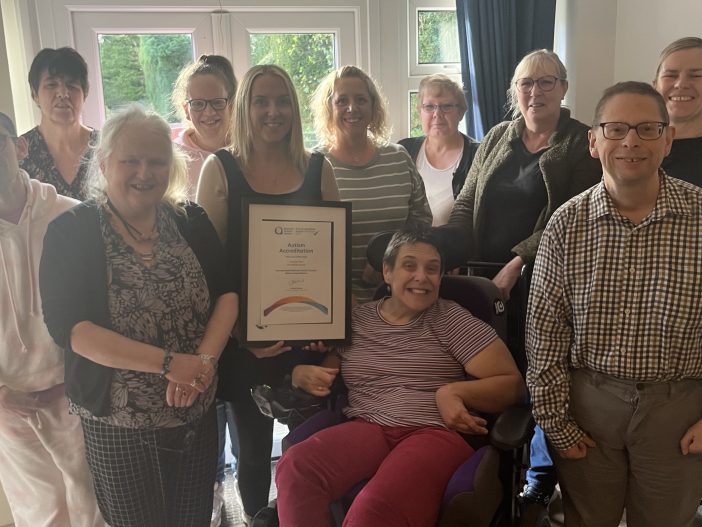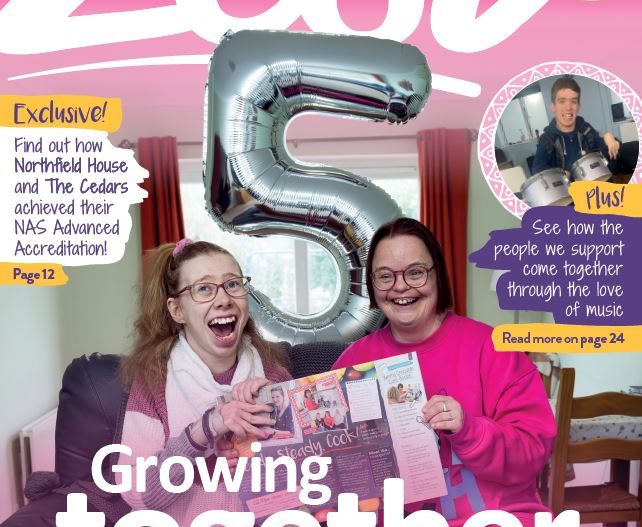COVID -19 and beyond, coping and resilience by autistic people within Voyage Care
A blog by Shaji Rajamony, Specialism Implementer
“Resilience refers to our ability to cope with the normal stress of life as well as being able to bounce back from crisis.” – From mentalhealth.org.uk
The Coronavirus (COVID-19) pandemic has had a major impact on all our lives and our world. It has disrupted routines, reduced access to communal services, and may have contributed to regression in acquired skills among autistic people.
Keeping routines during COVID-19
Strong desires for sameness and following routines are the most common features of autism. Changes to everyday routines and restrictions on normal activities can have an impact on the physical and mental health of autistic people. It can also lead to high rates of anxiety and depression. Although, the motivation for special interests is linked to the well-being and satisfaction in autistic individuals, very high-intensity engagement with limited resources has detrimental effects.
Restricting the use of communal spaces due to isolation and processing information around the new social distancing rules has been a huge challenge for people with autism. However, the Voyage Care support team was successful in managing these challenges. Decision making, adapting strategies and supporting autistic people to follow Government guidelines around COVID-19, especially isolation was difficult for frontline staff. Using visuals, role plays and keeping others safe and away from isolated people, were some of the steps staff used to support distressed people.
The COVID-19 restrictions impacted external community-based activities. Staff teams at services attempted to sustain meaningful activities by re-creating them within the home. For example; a visit to the local café or a cookery session at a day service, was recreated at home with staff getting involved and playing the part of café waiters and some even became chefs. This was to give the people we support a fulfilled experience.
There are ways in which the current circumstances have created positive outcomes for autistic people. This includes teaching new skills or developing existing ones, particularly around hygiene. Our new ways of living have encouraged people to start being more focused on their personal hygiene and their own health. Although, washing hands and consistent use of hand sanitiser can be a tough task for people with sensory issues. There has also been an increased focus on active support throughout the pandemic which promoted more independence and turned what might have been previously seen as mundane tasks into more meaningful activities. For example, people we support are encouraged to pick and design their own face masks, this reduces the challenging behaviour sometimes displayed when needing to wear one.
The pandemic is changing several factors which has forced people to adopt a new normal, which depends on their needs and environment. These factors include:
- Balancing autistic individuals’ needs for routine and environmental predictability versus the unpredictability associated with the pandemic;
- Social and sensory needs versus autistic individuals’ understanding of the current situation;
- Autistic individuals’ learning or adaptive styles versus available opportunities at this time;
- The living environment or limited choices of activity schedules.
Developing resilience
This pandemic has been an opportunity to develop resilience, not just for autistic individuals but also their support network. Support staff have played an important role in keeping autistic people engaged and resilient to changes. When one becomes resilient, they are very good at selecting where they choose to focus. Autistic people who have the capacity to take decisions, after several negotiations with themselves and through continuous and consistent reassurance by support staff, tend to focus on the available resources and choices.
However, this may not be the situation with all autistic individuals’ especial people who lack capacity. There could be people who try to push boundaries, possibly through different ways of communication, which may include behaviour that is challenging to others. The people who become resilient realise and focus on things that are achievable and choose not to focus on what they cannot change. This could only be only sustained with the continuous and consistent care of the support staff. There is a lot of stress out in the world around us, threat focus and stress response are permanently drilled into the non-autistic population, so it is quite understandable how this would be challenging with autistic people.
Encouraging resilience is critical to improving care and support for autistic people during and after the pandemic. These factors should be considered in the context of the anxieties experienced by autistic people throughout the pandemic. For example, the challenges faced during lockdown, including attending healthcare appointments, external sensory seeking activities and attending day services.
COVID-19 encourages the use of technology to support a broader range of options which better meet the diverse needs of autistic people and their families. For example, the use of technology and video has helped autistic people to stay in contact with their loved ones, see a virtual tour of their new home or even meet their new service managers when transitioning!
Lockdown has given an opportunity for neurotypical people to understand how it feels to be restricted especially when interacting socially. Our staff teams went above and beyond despite being challenged with some limited resources, they worked incredibly hard to support autistic people. This is reflected in the huge reduction of challenging behaviour incidents, across all of our services.
The latest recovery roadmap easing lock down has been a huge relief among autistic people. However, staff are still cautious and are making sure they help autistic people manage expectations.
We are very proud about the autism specialism at Voyage Care. Our dedicated support workers are trained to understand the needs of autistic people and provide person-centred care based on the goals they want to achieve.
Are you interested in learning more about our autism specialism? Please fill in this quick and easy form and a member of our friendly team will be in touch.

 News & events
News & events 

